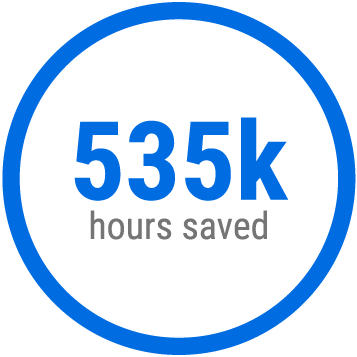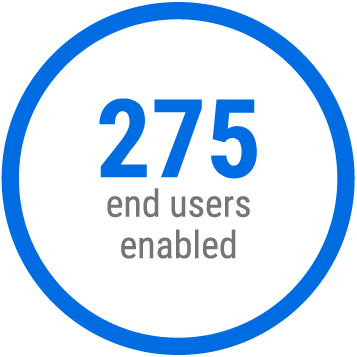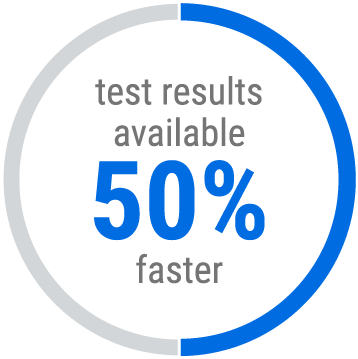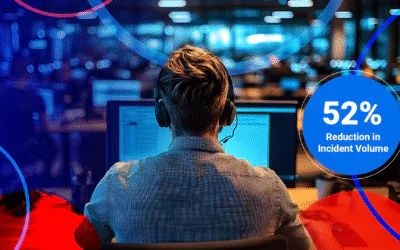Background
 The U.S. Food and Drug Administration (FDA), under the Department of Health and Human Services (HHS), safeguards public health by regulating drugs, medical devices, food, cosmetics, and radiation-emitting products. The Office of Inspections and Investigations (OII) leads FDA field operations, including inspections, sample analyses, and import reviews, operating from 227 offices and 12 laboratories nationwide. OII labs test thousands of product samples each year, supporting enforcement with scientific data. Previously, much of this work relied on manual, paper-based reports, limiting efficiency. To modernize operations, OII developed the Automated Laboratory Information System (ALIS)—a custom web-based tool that manages sample transfers, captures analytical data, automates reports, and integrates with agency systems such as FACTS, ORADSS, and CMS. ALIS also logs document changes and supports third-party software integration to streamline workflows. After a successful pilot, the Office of the Chief Scientist (OCS), through the Informatics and Business Operation Staff (IBOS), initiated a transition of ALIS to the cloud to automate data processing, improve sharing, and enhance compliance across labs.
The U.S. Food and Drug Administration (FDA), under the Department of Health and Human Services (HHS), safeguards public health by regulating drugs, medical devices, food, cosmetics, and radiation-emitting products. The Office of Inspections and Investigations (OII) leads FDA field operations, including inspections, sample analyses, and import reviews, operating from 227 offices and 12 laboratories nationwide. OII labs test thousands of product samples each year, supporting enforcement with scientific data. Previously, much of this work relied on manual, paper-based reports, limiting efficiency. To modernize operations, OII developed the Automated Laboratory Information System (ALIS)—a custom web-based tool that manages sample transfers, captures analytical data, automates reports, and integrates with agency systems such as FACTS, ORADSS, and CMS. ALIS also logs document changes and supports third-party software integration to streamline workflows. After a successful pilot, the Office of the Chief Scientist (OCS), through the Informatics and Business Operation Staff (IBOS), initiated a transition of ALIS to the cloud to automate data processing, improve sharing, and enhance compliance across labs.
Challenge
To modernize lab operations, REI Systems collaborated with the FDA’s IBOS, OBISM, and ODT’s Division of Application Services to transition ALIS to the cloud and automate the processing and sharing of analytical data. OII defined four primary goals for the updated ALIS system:
- Increase speed and accuracy of data aggregation across labs.
- Establish a secure, scalable cloud infrastructure.
- Improve report generation and system integration to support compliance.
- Enhance efficiency and reduce costs through modular, user-driven workflows (uALIS).
- These upgrades aimed to reduce manual tasks, empower lab staff, and strengthen regulatory operations.
Solutions
Cloud-Native Application
The team developed a brand-new custom cloud-native, web-based application on the FDA’s GovCloud platform. This cloud-native approach encouraged our team to prioritize operational and hosting efficiency, security, and support and coordination across multiple OII laboratories dispersed across different geographical locations. Additionally, it enabled our team to seamlessly integrate essential security tools and expedited our ability to obtain Authority to Operate (ATO) quickly and efficiently.
Human-Centered Design
The customer experience (CX) team conducted product research via numerous interviews with prospective end users and stakeholders of the system. Its objective was to gather insights 
- Partner agency teams like the Centers for Disease Control and Prevention (CDC), Customs and Border Protection, and the Environmental Protection Agency (EPA)
- Members of regulated industries (e.g., food producers and pesticide manufacturers)
- Interested third-party partners, such as academia and state and local public health partners
Customized Workflows
ALIS features a fully electronic system that complies with Federal records management mandates while offering unprecedented flexibility to laboratory scientists. The innovative “Build-it-Yourself” framework enables scientists to create customized reporting templates tailored to their specific analytical processes without requiring developer intervention. This self-service approach significantly empowers laboratory staff by allowing them to adapt their workflows to emerging scientific needs and regulatory requirements in real-time. Scientists can design, test, and implement specialized templates for various analysis types, dramatically reducing the time from workflow conception to deployment. By shifting template creation to end users, the development team can redirect their efforts toward system-wide enhancements that benefit all laboratories. An oversight board reviews all user-created templates to ensure they meet technical standards and business requirements, maintaining system integrity while fostering innovation. The customized workflows capability has become a cornerstone of the Universal ALIS (uALIS) model, enabling the system to support virtually any laboratory analysis process across the FDA’s diverse testing programs.
 Training and Adoption
Training and Adoption
The successful implementation of ALIS goes beyond technology—it is built on a foundation of comprehensive user enablement. Our “Train the Trainer” program transforms subject matter experts into application champions who provide ongoing peer support across the organization. These high-impact, in-person sessions create valuable face-to-face connections and deliver immediate insights into user experience.
To ensure lasting success, we developed a comprehensive support ecosystem featuring intuitive user guides, responsive FAQs, and concise training videos designed for users at every proficiency level. This multifaceted approach has delivered exceptional results, with our training program earning an impressive 4.42/5 satisfaction rating and driving rapid adoption across the organization.
Results
The team implemented the first phase of ALIS in August 2022 in under eight months as a completely new cloud-native application to support the Pesticide program. The second phase of ALIS was implemented in August 2023 to meet the need of testing a wide range of analyses. OII has enabled nearly 275 end users such as lab analysts and lab supervisors to leverage ALIS, thereby increasing the mission agility, flexibility, and cost reduction.
The system’s impact on productivity has been remarkable, accelerating sample test result delivery by 50% and generating significant time savings across laboratory operations. Since its launch, ALIS has saved approximately 535,716 hours across both the Pesticide and Microbiology programs by streamlining analytical processes and eliminating manual workflows. The platform has successfully processed over 12,712 Microbiology Program samples and 9,587 Pesticide Program samples, demonstrating its robust capacity to handle diverse testing requirements.



ALIS has transformed laboratory operations by digitizing analytical packages and automating critical processes, including sample accounting, data analysis, document control, and report generation. The implementation of e-signatures and direct integration with the Compliance Management System (CMS) has further accelerated workflows while reducing administrative burden. Most importantly, the system has significantly enhanced OII’s ability to identify counterfeit, hazardous, and mislabeled products across geographic boundaries, strengthening the FDA’s consumer protection mandate.

Ultimately, ALIS helps the FDA proactively identify risks and rapidly respond to public health emergencies, strengthening the protection of our national supply chain of FDA-regulated products.
Regulatory Impact of ALIS Modernization
ALIS streamlined regulatory processes, including sample analysis, data management, and reporting, leading to improved compliance with regulatory requirements. By automating tasks and providing real-time insights, ALIS enables regulatory agencies to assess product safety, efficacy, and quality more efficiently, facilitating the approval of new drugs, medical devices, and other regulated products.
Additionally, ALIS plays a key role in safeguarding public health by enabling the timely detection and response to potential risks associated with regulated products. By identifying counterfeit, hazardous, and mislabeled products, ALIS helps prevent adverse health effects and protects consumers from unsafe or ineffective products.
Furthermore, ALIS improves surveillance and monitoring capabilities, enabling regulatory agencies to track trends, patterns, and emerging risks more effectively, and intervene proactively to mitigate public health threats. Overall, ALIS contributes to the FDA’s mission of protecting and promoting public health by ensuring the safety, efficacy, and quality of regulated products, while also bolstering operational efficiency and regulatory oversight.
ALIS is a FedHealthIT 2023 Disruptive Tech Program Award Winner!
Two-time winner of the FDA Group Honor Recognition Award.
For more information about this project, contact Morgan Carrasquillo at Morgan.Carrasquillo@fda.hhs.gov or for questions about the technologies involved in this effort, contact Priyal Harode at Priyal.Harode@reisystems.com.
Copyright © 2025 REI Systems. All rights reserved.


 Training and Adoption
Training and Adoption 


